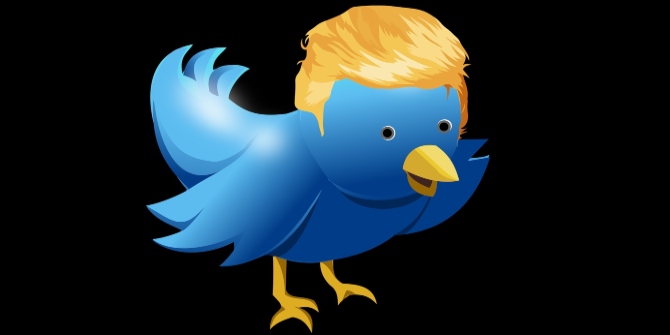
The sudden onset of the pandemic has been forcing leaders and their organisations to experiment with unprecedented intensity, whether by reconfiguring existing work environments, applying existing skills to new markets, developing new skills for existing markets, or redirecting existing capacity to satisfy new needs.
Nowhere is this clearer than in entrepreneurial small businesses. Michelle Panik, CEO and founder of Marine Services International Inc. (MSI), had several times rejected her employees’ requests to move to a workweek of four days in the office, and one day working from home, fearful of a drop in productivity in the small-but-growing freight forwarder in Ohio. Then the pandemic struck. “Even though we are an essential business, our staff’s concerns forced us to invent a way to comply with the strict regulations of the US Customs authority and other regulators, and data security requirements while working from PCs at home,” says Panik. She worked with her IT partner to design and implement a compliant system for secure real time remote monitoring of employee’s PCs. “That was an eye-opener for us.”.
Like MSI, many companies will never be the same again. Reflecting on MSI’s forced experiment, Panik comments: “We learned a valuable lesson, one that we will hardwire in going forward: People are going to keep working from home. In addition, it is now a viable option for us if necessary, and it may help us save on office expenses as a result. We have definitely learned how to change ourselves and be more adaptive to new situations.”
From observing numerous of these experiments unfold, a pattern is emerging, a kind of template that entrepreneurial leaders can adopt beyond the current crisis.
Take more risk rather than less
In recent decades, the most innovative organisations have taught us that experimentation is essential for growth. Nevertheless, there has always been an implicit limit: too much mistake making is destabilising, and too much internal instability limits scalability. However, the sheer extent of the market havoc wreaked by the pandemic is pushing this practice to a new level.
Dennis Kogan and Bjoern von Siemens, co-founders and chief executive and chief business officer, respectively, of Caresyntax, a small-but-global healthcare analytics, automation and AI company, have been experimenting with and building alliances with health care giants 100 times its size. “With the advent of COVID, virtual care and surgery are becoming a necessity. Just for example, surgical equipment vendors’ representatives can no longer be present in the operating rooms to support surgical teams during operations,” Kogan explained. As an analytics and automation platform for operating rooms, Caresyntax is learning how to convene and participate in multilateral partnerships with billion-dollar multinational equipment vendors, insurers and integrators in order to better manage and respond to risk throughout the entire surgical value chain, a value chain being significantly impacted by COVID.
Accelerating experimentation when a crisis strikes flies in the face of conventional wisdom that stability is good and to do that, you need to stray further from the course, rather than staying the course. Reeling from shuttered markets, broken supply chains and cautious employees staying home, rather than staying on the track you laid down pre-crisis, you need to intentionally move away from business as usual and try out new markets, new work practices and new logistics. As Panik and others are learning, try out the things that you previously were sure were unfeasible, unwise or even impossible. Like the proverbial spaghetti, throw more against the wall to see what sticks.
Declare a moratorium on blame
Taking more risk by experimenting means making more mistakes. Not only do you need to legitimise mistakes, you need to take the further step of making them mandatory. Yes, we have all heard that blame is bad, and we have read that a culture ensuring psychological safety is paramount. Yet the reality is that most leaders express frustration and often anger and blame when their staff make mistakes. The pandemic and its forced experimentation is legitimising mistakes, and leaders can more frequently communicate, “This is a time we will all make mistakes, I will make mistakes. Many new things we will do in the coming days and weeks will not work. I expect you to tell me my mistakes, but we will be striving to improve, not blaming who went wrong.” Banning blame does not mean ceasing criticism, but errors of commission are essential in experimentation and facilitate rapid learning and course-correction.
Intensify reflection and learning
An example close to me is Tulu, a rental-in-place venture inside of Manhattan and Tel Aviv apartment buildings, in which I own a minor stake. When the lockdown in New York City started in mid-March, Tulu conducted a survey among tenants who used the company’s in-building units to autonomously rent anything from Dyson’s vacuum cleaners to pasta makers. “It was clear that beyond convenient renting, buying hard-to-get products such as sanitiser and toilet paper had become top of mind” says Yishai Lehavi, Tulu CEO and co-founder.
Tulu’s first experiment – to add a mini-store with autonomous payment inside the rental units – was an immediate success. Then, observing the uptake of sales within the rental units, Tulu’s founders, Lehavi, Yael Shemer, and Itamar Mofaz reflected, “Why limit our service to only physical?” Their next experiment, called “Virtual Tulu”, extends the first to serve adjacent buildings as well. “Who knows? We may start to look like Amazon soon,” says Lehavi.
Institutionalise what works
“Knowing that we can play with global industry leaders is already being hardwired into our strategy going forward,” comments CareSyntax’s Kogan. Ueni’s experience with the pandemic has changed the process used by its salesforce. Anh Pham Vu and Christine Telyan (LSE ‘05) co-founded UENI.com in London in 2015 to provide tens of millions of small enterprises around the world with their first digital presence and e-commerce capability. Often representing their customers’ first foray into online selling as well, when the pandemic struck, Pham Vu and Telyan rapidly introduced new e-commerce features so that their clients could sell more right away. “Things were happening so fast, we had to abandon our sales process of consultative selling, explaining to customers why e-commerce would benefit them. We experimented with getting right to the point: ‘If you don’t sell online, your business may die. Do it,’ ”says Pham Vu. It actually was a win-win: UENI’s marketing team converted more leads to paying customers, and customers got down to business quicker. “We are now training our sales force to be more straightforward and this is now part of our sales process and key performance indicators.”
The safest time to be risky
Paradoxically, this may be the best time to take on risky experimentation. If the pandemic has hammered your business, as has happened to millions of businesses, then you have little to lose, and a lot to gain, by trying out many new things to see what works. The song, “Been down so long, it looks like up to me” actually has scientific support in Kahneman and Tversky’s Nobel winning research on prospect theory, which shows that improving a bad situation is more valued – and hence more motivating – than improving on a good situation.
Many entrepreneurial leaders, who deservedly pride themselves on their own personal capacity to cope with uncertainty and ambiguity, quietly complain about the conservatism they encounter inside their companies. As Maritime, CareSyntax, Ueni and countless others are learning, this pandemic, with all of its pain and tragedy, is an unparalleled opportunity for leaders to systematise experimentation.
♣♣♣
Notes:
- The post expresses the views of its author(s), not the position of LSE Business Review or the London School of Economics.
- Featured image by jbauer-fotographie, under a Pixabay licence
- When you leave a comment, you’re agreeing to our Comment Policy
 Daniel Isenberg is currently professor (adjunct) at Columbia Business School and Babson College, and author of Worthless, Impossible and Stupid: How Contrarian Entrepreneurs Create and Capture Extraordinary Value (Harvard, 2013). Isenberg is a thought and practice leader in applying the lessons of entrepreneurship to regional economic development, an active angel investor, and formerly a venture capitalist in Israel. Isenberg has the Ph.D. degree from Harvard University. . You can reach him at disen@babson.edu or follow him on Twitter: @danisen
Daniel Isenberg is currently professor (adjunct) at Columbia Business School and Babson College, and author of Worthless, Impossible and Stupid: How Contrarian Entrepreneurs Create and Capture Extraordinary Value (Harvard, 2013). Isenberg is a thought and practice leader in applying the lessons of entrepreneurship to regional economic development, an active angel investor, and formerly a venture capitalist in Israel. Isenberg has the Ph.D. degree from Harvard University. . You can reach him at disen@babson.edu or follow him on Twitter: @danisen






Interesting, but I am not sure it gets us on very far. In any time of economic disruption and social change shock some firms will innovate a lot, some will innovate a bit, and many will change very little. Some changes will work, others will fail and the firm will revert to previous practice, and some – especially those imposed by government regulation – will be abandoned once normal economic conditions reassert themselves. We have no way of knowing what the balance is between these different categories within the firm population and therefore what importance we should attach to them and probably will not know until well after the pandemic subsides. One indirect indicator would be faster productivity growth post COVID19, but so far few forecasters are assuming any long term effect from the crisis. A more direct indicator would be an uptake in innovative practices as defined in some regular innovation surveys such as the EU’s CIS, but my understanding is that the next survey is not due until 2021 with first results published in 2022.